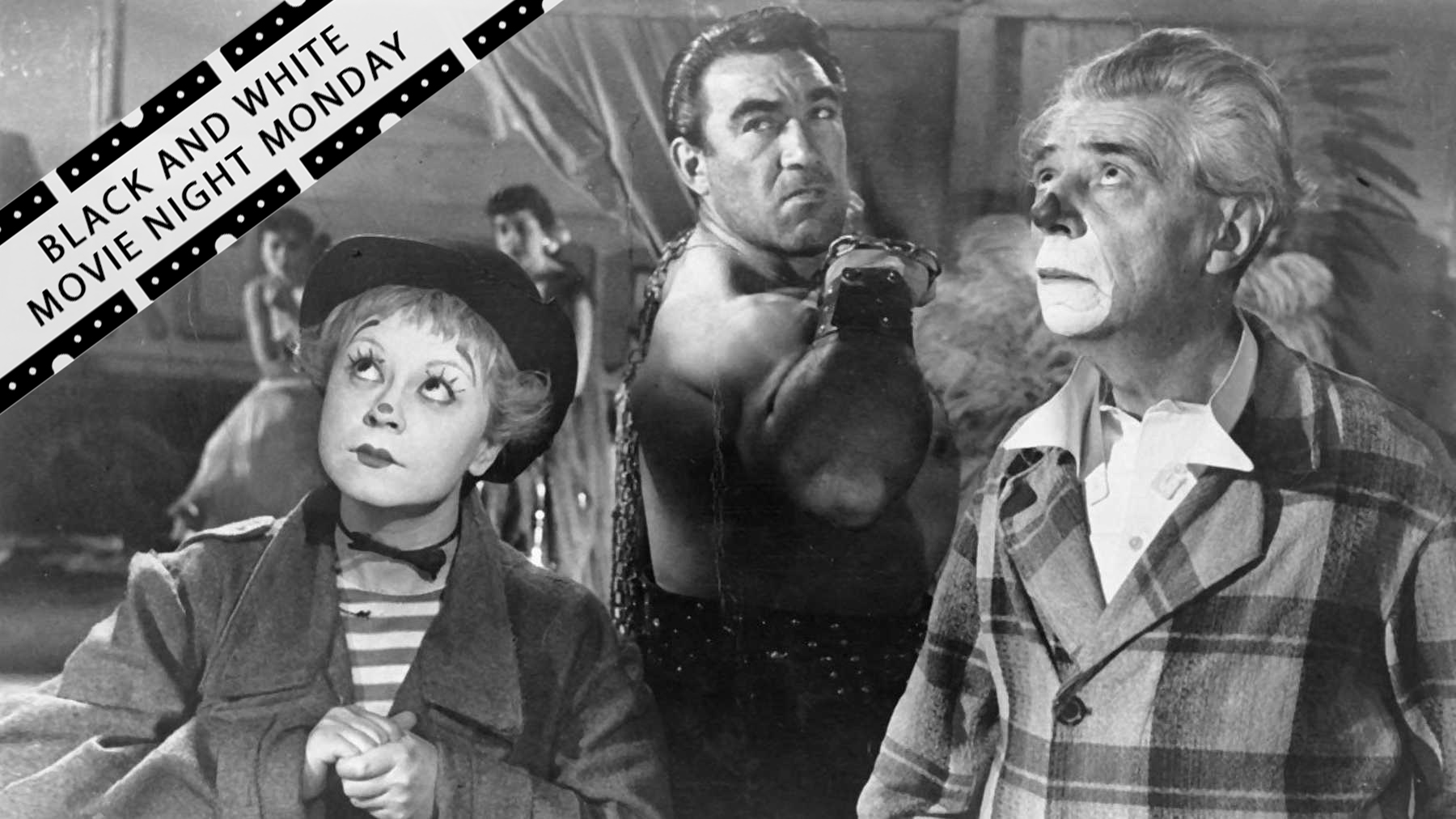
La Strada takes no time at all getting into the tragedy of its story. Within 5 minutes we are introduced to our protagonist, Gelsomina (Guilietta Masina), whose sister, Rosa, has passed away. Rosa’s husband, the burlyman Zampino (Anthony Quinn), then purchases Gelsomina as his new wife. From the start the film takes that tone of tragedy and counterbalances it with something else as Gelsomina smiles strangely at the prospect of leaving home and starting a new life in the wake of her sister’s death. This sets up the tone we are to face for the rest of the film, a sort of strange imbalance between emotions faced by both the characters and the audience. This imbalance is due in large part to Gelsomina’s mental condition, which shows that she has difficulty understanding and learning and cannot operate as a functional adult without the help of someone else. But we fall in love with her despite this (or perhaps because of it), and throughout the film, Guilietta Masina’s face is mesmerizing in this role, giving us so much insight into what might be going on in her head as her expressions grow wonderfully from wide eyed to confused to sad and at times confident. I personally don’t doubt that whatever she’s thinking about is pure and wonderful, and I don’t think Fellini would disagree either.
However, her new “husband” (though they are never officially married), Zampino, is cruel and unforgiving to Gelsomina, using her only for his shows and not giving her the love she deserves. But somehow she stays with him, coming to believe her purpose is to take care of him. The two form an extremely unlikely and unconventional pair that feels instantly classic. At times, Gelsomina will try to escape from Zampino, and at other times, Zampino attempts to flee from her, and this imbalance continues as they travel together. The film could also fit into the category of a road movie, spanning numerous different locations as they perform from town to town for Zampino’s shows. It’s also hard to get a sense of time while watching La Strada with few time indicators given out throughout the film. And this is capitalized by the ending, which jumps ahead at least 5 years for its incredible final sequence. As they travel, the road changes Gelsomina, and we grow in our empathy towards her as she discovers the world and herself and comes to redefine her definition of home.
However, as Gelsomina grows as a character, Zampino largely stays the same for the majority of the film, allowing his anger and distrust of the world to guide him, bringing only pain to himself and Gelsomina. But what’s so interesting about Fellini’s filmmaking, is his compassion for a character like Zampino. At the start, it’s evidently clear that the empathy towards Gelsomina is there, but as the story progresses, we start to see that this film is also more about Zampino than originally expected. It’s the strange but affecting imbalance between toxic masculinity and the beautiful soul of Gelsomina. But despite this destructive behavior, Fellini shows extreme compassion and intrigue into the character of Zampino, whose anger at himself and the world will drive him into self-inflicted pain. It’s the same sort of character that Martin Scorsese would explore in many of his films, especially Jake Lamotta in Raging Bull, who shares many similarities with the masculine qualities of Zampino. Eventually, Zampino will come to see that he may have loved Gelsomina all along, but that it is already too late.
La Strada has some great scenes, and a very incredible story, but the reason the film works so well for me is due to the performances, the fascinating characters, and the hauntingly beautiful score by Nino Rota. By the end, the theme of the film has come full circle. We sit on yet another tragedy that has happened off-screen, but this time, Gelsomina is not there to add her strange, beautiful imbalance to it. And of course the score returns and I’m still humming it. Beautiful.
